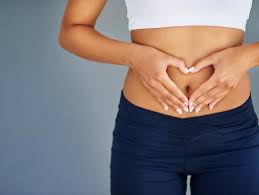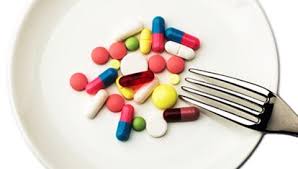Content of the Article
When intestinal health deteriorates, that is, when dysbiosis occurs, the risk of stomach and other health problems increases. Alright “What is dysbiosis?”
In our intestines, gut microbiomeThere are trillions of microorganisms that compose it. Our intestines are home to many bacteria, fungi and viruses. These microorganisms keep our gut healthy. But if an imbalance occurs in the number of beneficial and harmful bacteria, it is called dysbiosis.
What is dysbiosis?
When dysbiosis occurs, our guts are more vulnerable to diseases and other health conditions. Changes in the gut microbiome, also called the gut flora, can occur because the different organisms in our gut are not at the right levels.
When the gut microbiome loses bacterial diversity, the risk of developing a chronic disease increases.
What causes dysbiosis?
Causes of dysbiosisWe can list it as follows.
- Excessive or incorrect use of antibiotics
- Excessive alcohol consumption
- Increased sugar or protein consumption
- Frequent use of antacids
- Pesticidesexposure to
- Chronic stress
In addition, poor dental hygiene and anxiety can also lead to dysbiosis. In some cases, studies have linked dysbiosis to cesarean delivery and formula feeding in newborn babies.

What are the symptoms of dysbiosis?
Dysbiosis often manifests itself in the form of digestive disorders. Symptoms of dysbiosis It is:
- Bad breath
- Nausea
- Constipation
- Diarrhea
- difficulty urinating
- vaginal itching
- Swelling
- Chest pain
- redness
- Weakness
- Inability to pay attention to work
- Concern
- Depression
What are the types of dysbiosis?
There are three types of dysbiosis. In most cases, you can have all three types of dysbiosis. This is not uncommon. Types of dysbiosis It is as follows:
- Tip 1. This type of dysbiosis occurs when the good bacteria in the intestines decrease.
- Tip 2. This type of dysbiosis occurs as a result of the growth of too many harmful bacteria in the stomach.
- Tip 3. Dysbiosis happens when the overall gut microbiome loses its diversity. This means that both good and bad bacteria in the stomach are lost.
Diseases caused by dysbiosis
Dysbiosis can cause a number of chronic diseases and conditions. These conditions are:
- allergic disorders
- Obesity
- Type 1 diabetes
- Autism
- colorectal cancer
- Crohn's disease
- Ulcerative colitis
If you think you are experiencing any of these conditions, go to the doctor immediately to treat the underlying condition.
How is dysbiosis treated?
- If medication is behind the bacterial imbalance, the doctor will likely recommend that you stop using it until the bacterial balance is restored.
- The doctor may also prescribe medications to help control the bacteria.
Dysbiosis nutrition
If the bacterial imbalance is due to diet, the doctor will recommend a specific diet plan.
To keep bacteria in balance, you need to get enough nutrients such as:
- B complex vitamins such as B6 and B12
- Calcium
- Magnesium
- Beta carotene
- Zinc
Foods that are good for dysbiosis disease It is as follows:
- Dark green leafy vegetables like spinach and kale
- Fish such as salmon and mackerel
- fresh meat
Foods to avoid in case of dysbiosis include:
- Deli and canned meats
- Carbs in corn, oats or bread
- Some fruits, such as bananas, apples, and grapes
- Dairy products, including yogurt, milk, and cheese
- corn syrup, maple syrup and foods high in sugar, such as raw cane sugar
Taking probiotics also balances gut bacteria. Get advice from your doctor about which probiotics you will need to balance the gut microbiota.
How to prevent dysbiosis disease?
Certain lifestyle changes help maintain bacterial balance and prevent dysbiosis from occurring.
- Use antibiotics only under the supervision of a doctor.
- Use a probiotic supplement with a doctor's recommendation to help regulate gut bacteria.
- Drink less alcohol as it can upset the balance of bacteria in the gut. Best not to drink at all.
- Brush and floss your teeth every day to prevent bacteria from getting out of control in your mouth.
- Use condoms to prevent the spread of sexually transmitted bacteria and infections.
References: 1










